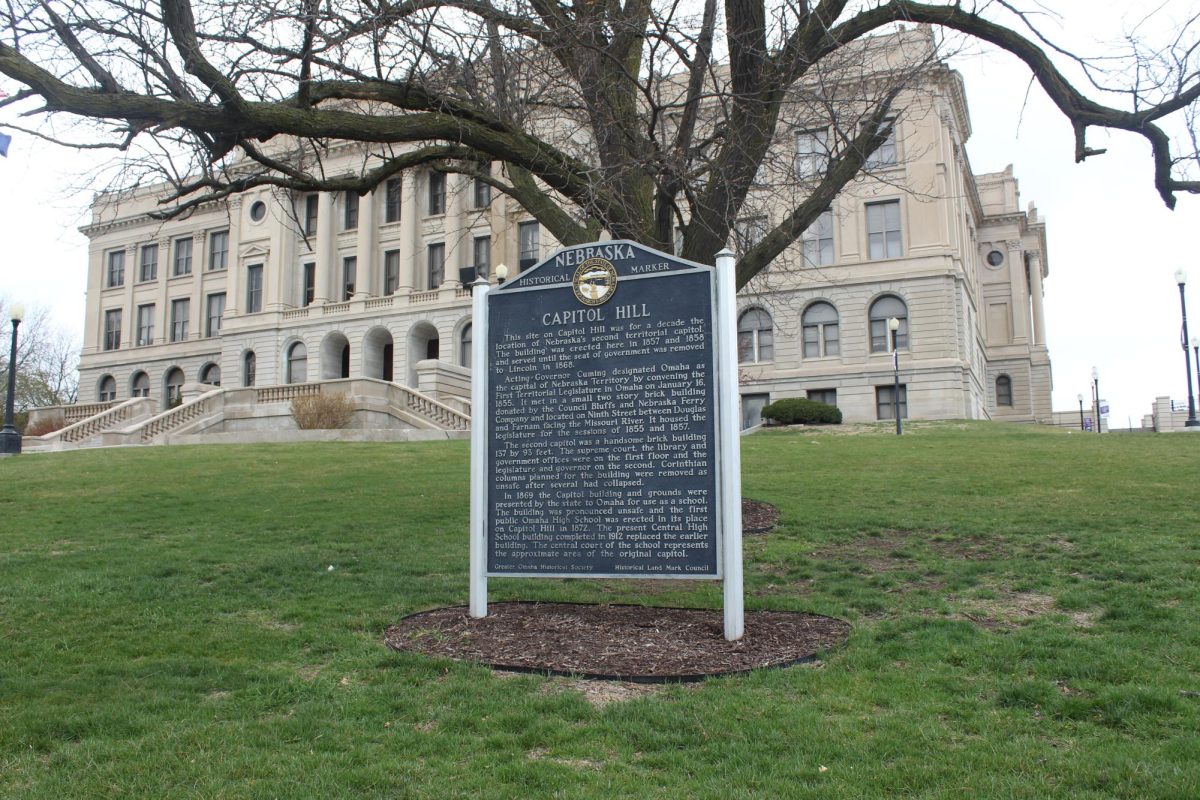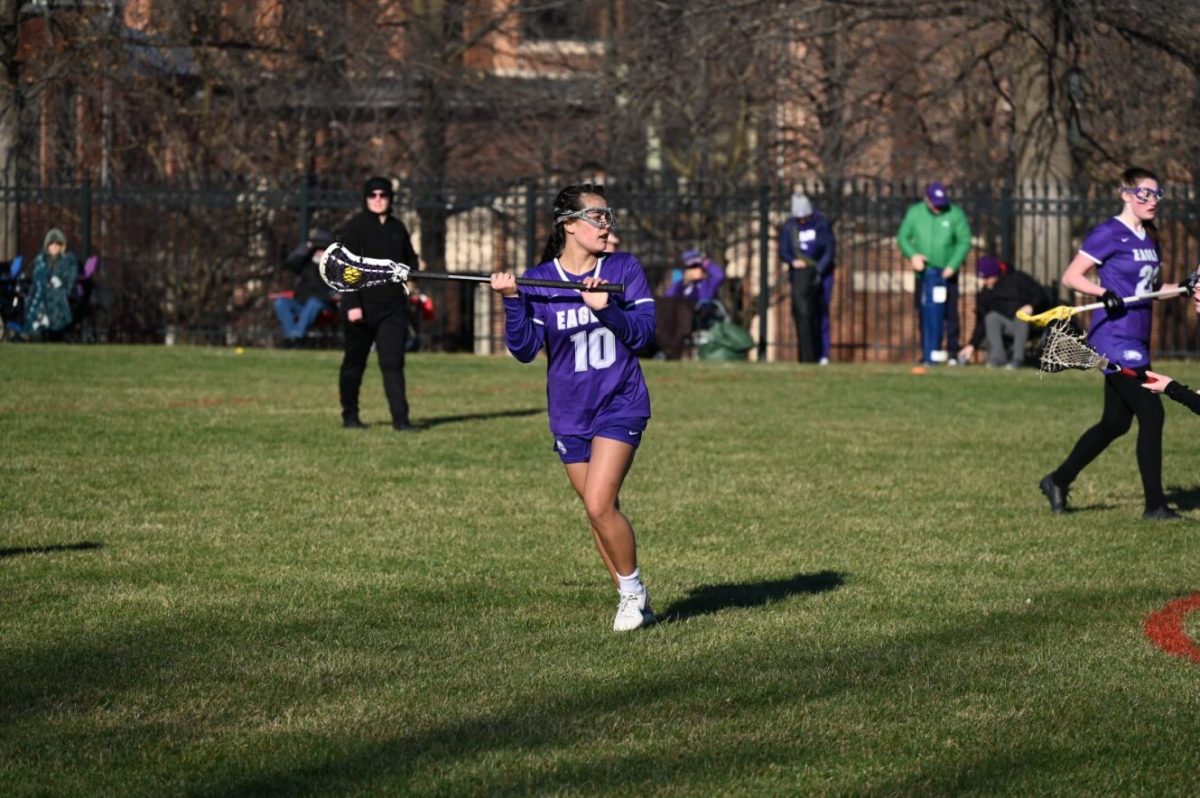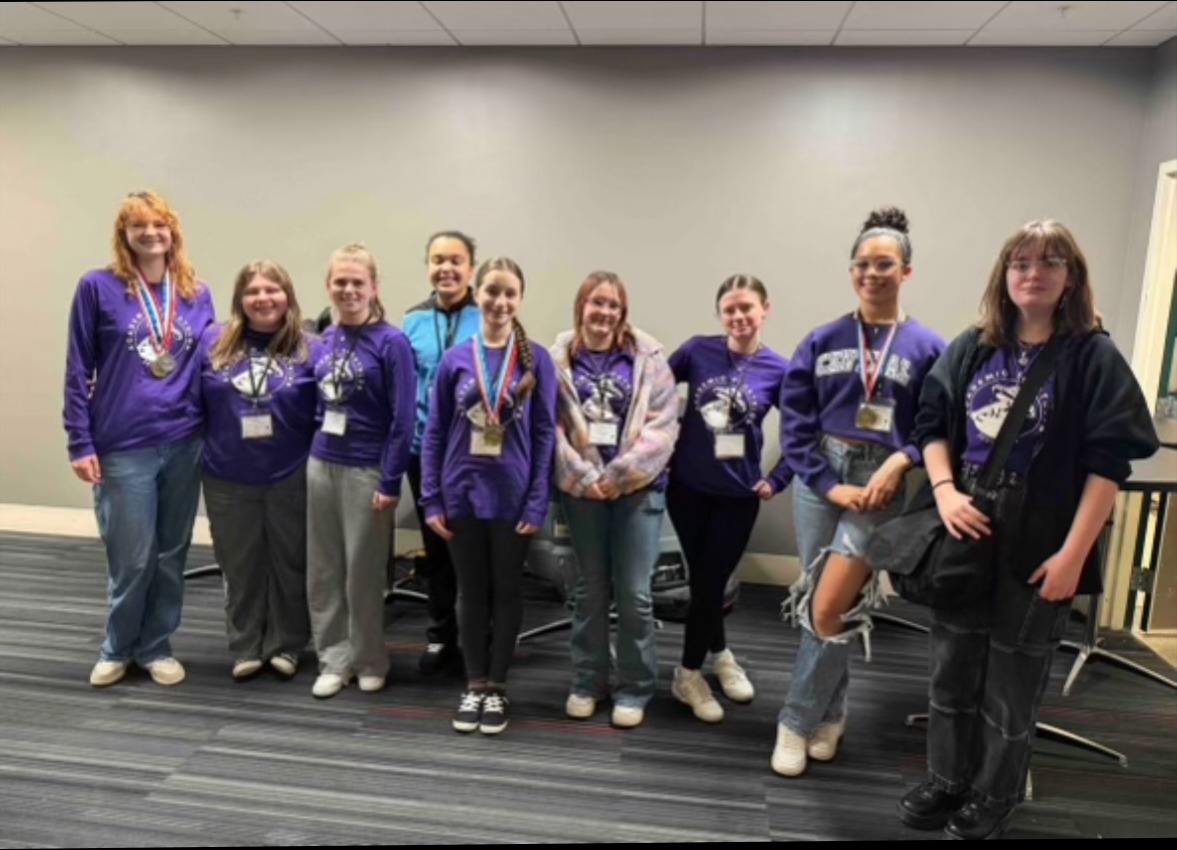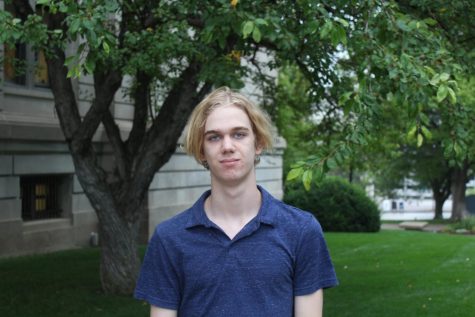History teacher Scott Wilson wins award of excellence
November 16, 2018
History teacher Scott Wilson won the Award of Excellence, presented by the Nebraska Department of Education, after finishing as one of two finalists for the Teacher of the Year award. Sydney Jensen, an English teacher at Lincoln High School, was named the Teacher of the Year.
Although a nomination is not required for eligibility for the award, Wilson was nominated by former head of social studies Harris Payne.
“He’s been a great mentor and supporter, basically the length of my career,” Wilson said. “I was very honored to even be nominated by Harris.”
Wilson began teaching history at Central 22 years ago, and has been teaching Honors US History for 18 years. He now also teaches AP and IB American History. He decided to become a teacher, he said, “undoubtedly because I was impacted by so many great educators in my life.”
“Most of the really influential people in my life were teachers,” Wilson said. “My mother was a teacher. But also, the people I really could count on, whose opinion I really valued were teachers.”
Wilson described being “completely impressed” at thirteen by his eighth grade history teacher Cheryl Becker, who, according to Wilson loved to teach and was immensely knowledgeable about history.
Wilson was also influenced by his physics teacher, Mr. Skinner, even though Wilson said he was never good at physics. Wilson said that the experience taught him that even if his students don’t share his passion for history, they can develop some form of appreciation for it if he teaches in an engaging and enjoyable manner.
Wilson said that on his first day teaching at Central, latin teacher Rita Ryan gave him the advice, “Entertain yourself first and your students second, and they’ll come along for the ride anytime,” which Wilson took to mean, “Teach in a way that makes you happy. If the students can see that you’re enjoying your teaching, they’ll probably come along with you.” Wilson has heeded Ryan’s advice ever since.
But as much as Wilson enjoys himself teaching, he takes the responsibilities of his job seriously. Teaching students history, Wilson said, is essential because “A lot of the issues that may seem archaic, 150 years old or longer, are still very much at issue and relevant to our modern day. How we got here is very important to understand who we are as a people.”
Wilson uses the experiences of Central Alumni such as Henry Fonda and Marion Crandell to give students a connection to the content of the class.
“That’s another thing about teaching at Central that is pretty rare, that we can draw upon our vast and storied history to illuminate some of our modern issues.”
As a part of the Teacher of the Year selection process, Wilson was asked to present the panel with a five minute lesson and participate in a 90 minute interview. Wilson chose to do a document-based-lesson on the roles of Central faculty and students in World War II.
“The point of that whole lesson was that part of the way that a lot of students become interested in history is that you can demonstrate to them how even the biggest things, like the First World War have a very real connection to your own location and your own personal lives and son on,” Wilson said.
During the interview, Wilson was asked if Nebraska was preparing students for the 21st century. He replied that Nebraska is preparing students, due in large part to the state’s strong support for public education. He pointed to Central as an example of the success of public schools.
“When you talk about the 21st century, you’re talking about a Nebraska that continues to become more diverse and has varying perspectives and so on. And I think that Central’s always, really tried to embrace that part of its student body,” Wilson said, later adding, “Truth be told, a lot of preparing students for the 21st century is doing some of the things that are bedrock educational tools from the 19th century.”
But Wilson warned that for the success of public schools to continue, it must not be taken for granted.
“We have to guard against thinking that it will always just happen,” Wilson said. “We have to continue to maintain and work and guard against complacency.”




















